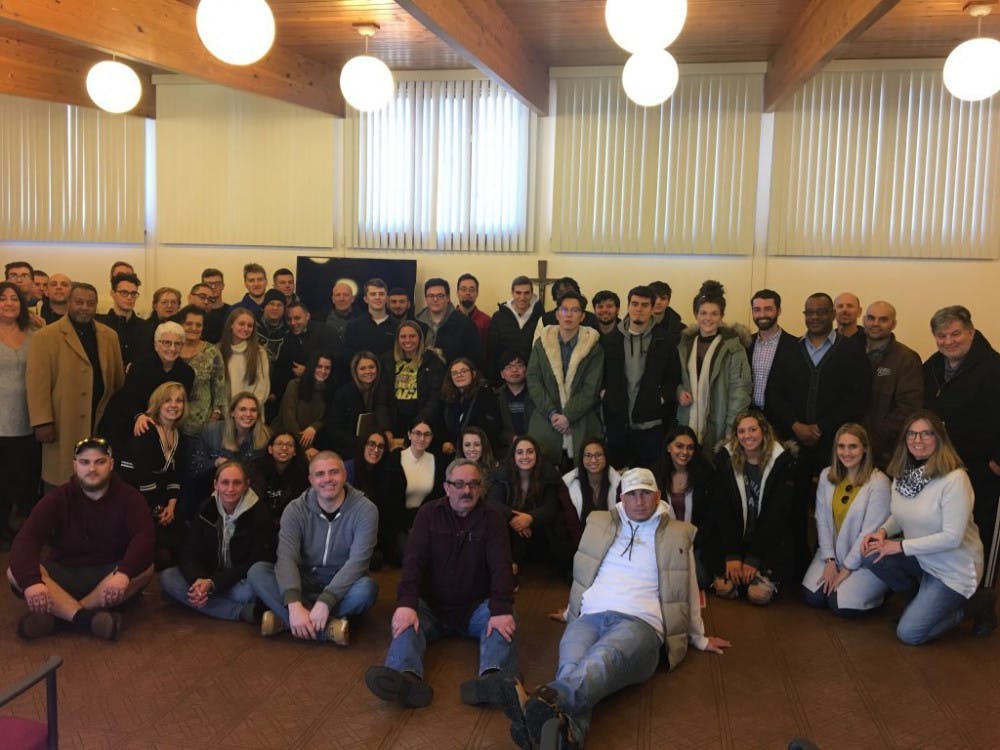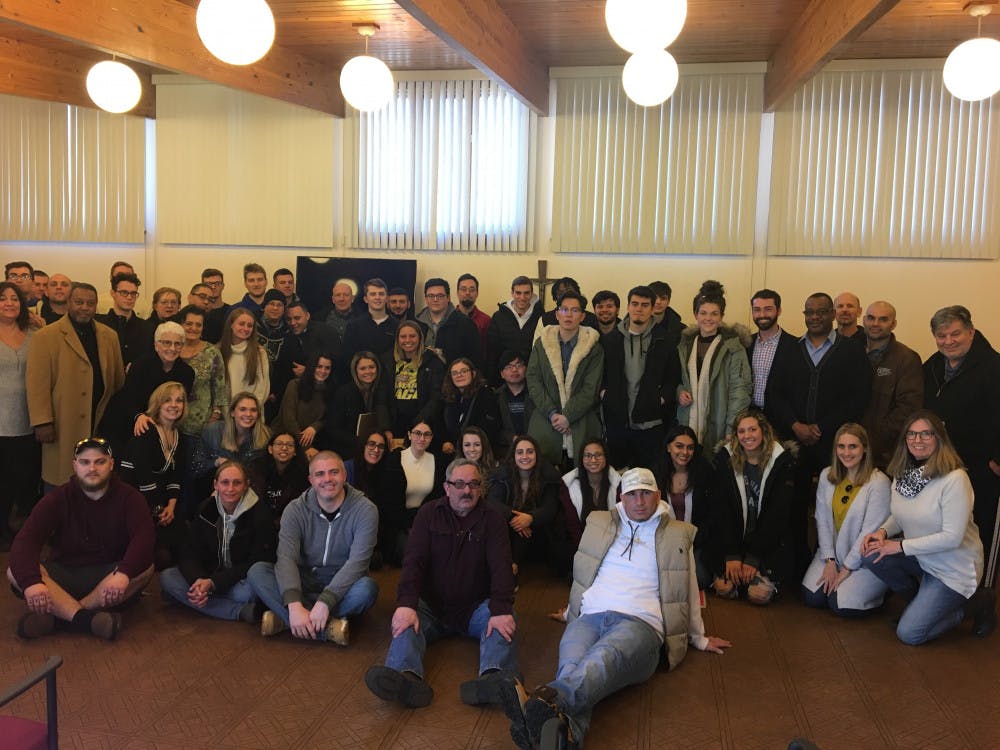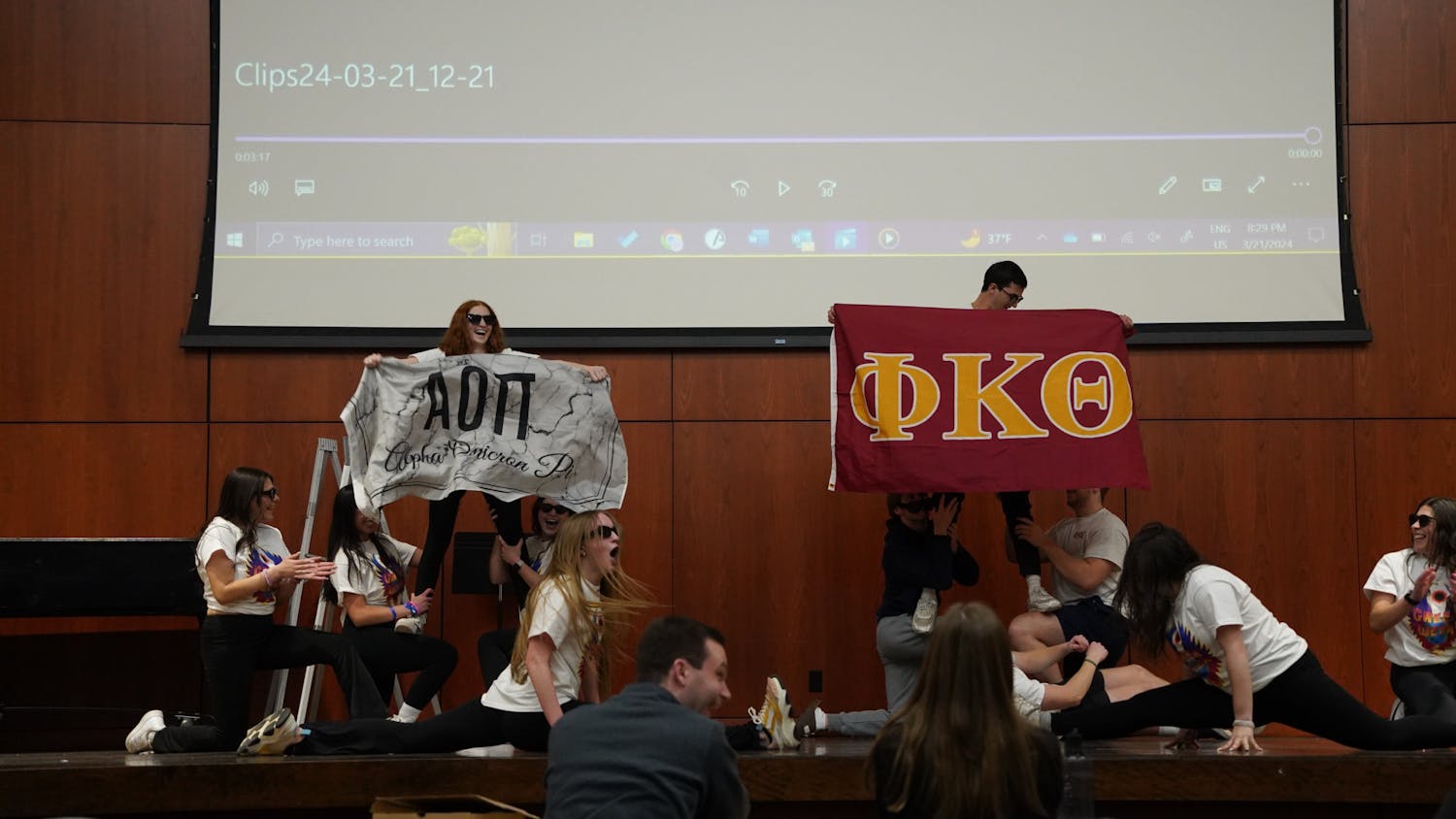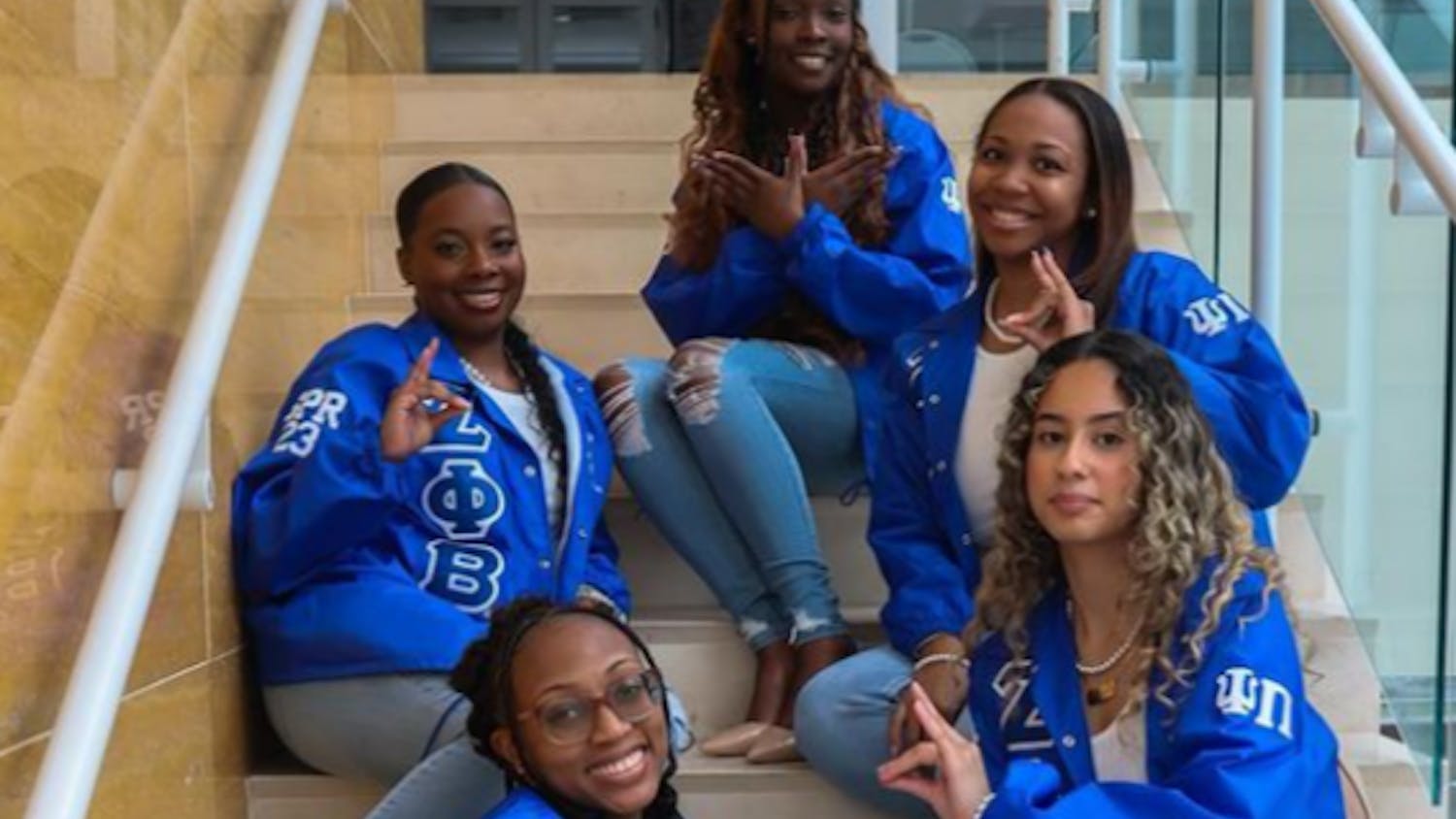On Feb. 9, a group of students from Melinda Papaccio’s Christianity and Culture in Dialogue class went on a service-learning trip to a ministry to speak to people involved in the The Healing Initiative—Recovery, Spirituality, and Twelve Steps program, known as “I-Thirst.”
Papaccio said as part of the service-learning aspect of this section of CORE II, students were engaging in active dialogue with those suffering from the pains of addiction. She said her main goal was to have her students interact with people in recovery to gain understanding on what an addict suffers from to build a sense of empathy.

Papaccio added that the experience was mutually beneficial for addicts to have someone hear what they go through on a daily basis, and for students to reconsider their values and decisions.
Zhanli Peng, a senior finance major, attended the trip and said it broadened his views and thoughts by only being exposed to Taoism and Buddhism in his native home of Jiangxi Providence, China.
“I hadn’t received any education about Christian faith before I came here to study,” Peng said. “I am willing to learn more about it because it is very mysterious and closely related to each of us.”
Papaccio explained that the I-Thirst program is a 12-step program that focuses on faith to help struggling addicts on their road to recovery. “The readings in both CORE I and II have applicability to the issue of addiction, especially if you look at it as a disordered attachment, both Christian and non-Christian texts,” she said.
Peng agreed and said, “There is no doubt that this experience really helped me in my study. It was very touching, because it is the truth that people never can refuse to believe.”
Emma Murphy, a junior secondary education and history major, said, “I think it’s really important that students are continuing to do community service during class. Service learning is an important aspect of Seton Hall’s mission, and can enhance a student’s learning experience and growth-centered mindset.”
With a personal connection to addiction due to the tragic death of her eldest son this past September, Papaccio said she hopes there will be a “ripple effect” to spread healing throughout the community.
“There is so much that he would not, and could not, tell me, but I know that he craved communication with others,” she said.
Pappacio described that a big part of their life is isolation, which shrinks down to a point where they feel they have no contact with anyone other than fellow addicts.
“My son wanted to live,” she said. “He didn’t want to die the way he did. I wish there could’ve been more and better help for him. Now, I want to honor his suffering and that of all addicts.
“I learned that so many of my students are struggling with this in their lives – a loved one, friend, family member and they don’t know what to do, they’re struggling with their emotions and feelings.”
Papaccio said a healing mass will take place on March 21 on campus to have “open dialogue” among students about addiction and mental illness.
“Those who are suffering were grateful to have the opportunity to speak to students about their lives, experiences – that helps to heal them,” Papaccio said. “Healing starts with a reversal of isolation.”
Elise Kerim can be reached at elise.kerim@student.shu.edu.





